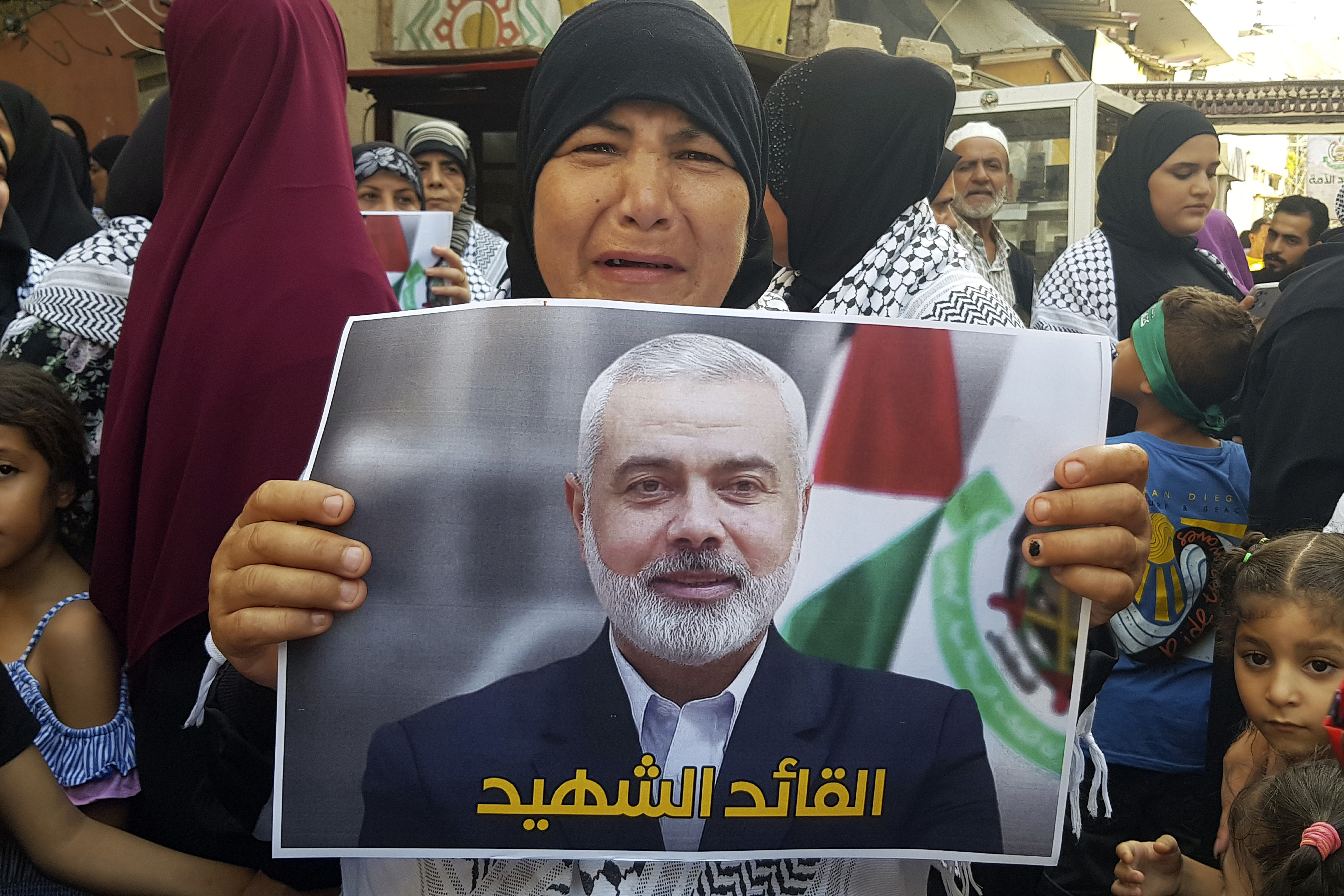US Places Hope in Gaza Cease-Fire Talks Amid Escalating Violence in Mideast
American officials appear to lack a feasible alternative strategy and are displeased with the suspected actions taken by Israel.

Secretary of State Antony Blinken and Defense Secretary Lloyd Austin emphasized to reporters on Wednesday that their primary focus is still on diplomatic efforts between Israel and the Hamas militant group. Blinken highlighted the importance of a Gaza cease-fire in achieving stability in other areas.
“The best way to bring the temperature down everywhere, put us on a better path, is through a cease-fire in Gaza,” Blinken said in an interview in Singapore. “That will have, I think, important effects on other areas where you could see conflict — whether it’s in the north of Israel and Lebanon, whether it’s Iran, whether it’s in the Red Sea with the Houthis.”
Their comments follow two recent assassinations in the Middle East: Hezbollah military commander Fuad Shukr in Beirut and Hamas political chief Ismail Haniyeh in Tehran. Israel has claimed responsibility for the first assassination and is suspected in the second. The killing of Haniyeh, involved in the cease-fire negotiations, could derail talks, as Iran has already vowed retribution.
The Biden administration’s focus on Gaza cease-fire talks underscores the centrality of these discussions in U.S. efforts to prevent a broader regional conflict. Other options, like persuading Hamas leaders to surrender and go into exile, appear impractical at this time.
Negotiations between Israel and Hamas have encountered difficulties recently, as both sides demand new concessions amidst mutual distrust about adhering to the terms of a proposed multi-phase agreement.
A senior Biden administration official admitted that the Haniyeh strike has complicated U.S. negotiations but refrained from detailing discussions with Israel. Senate Armed Services Chair Jack Reed (D-R.I.) questioned Israel’s motives, particularly given Haniyeh’s role as a negotiator.
“The concern is is this going to cause an escalation because in downtown Beirut they took somebody out, and in downtown Tehran they took someone out,” Reed said. “The question is what effect will it have on negotiations. I don’t think it will help it, I think it will set it back. That might be part of the logic of the attack on him too.”
Without a truce, U.S. officials fear escalating violence between Israel and Hamas could draw in other groups, such as Hezbollah and the Houthis, potentially igniting a regional conflict, with the added risk of direct clashes between Israel and Iran.
Since a Hamas attack on Israel on October 7 that resulted in significant casualties, Israel has engaged in combat with Palestinian militants while also participating in negotiations for temporary truces and hostage releases.
Violence between Israel and Iran-backed Hezbollah forces in Lebanon has escalated, but the U.S. has pursued indirect talks. American officials believe that Hezbollah is unlikely to de-escalate until Hamas agrees to a cease-fire.
An alleged Hezbollah strike that killed children at a sports field in the Golan Heights possibly prompted Israel’s retaliation against Shukr in Beirut. U.S. officials viewed Israel’s response as proportional, though Hezbollah’s reaction was uncertain.
The assassination in Iran poses greater risks. The White House did not receive advance notice, and Blinken confirmed, “this is something we were not aware of or involved in.” Israel has remained silent on the operation, and U.S. officials have found no suggestion of other actors being responsible.
The rationale behind Israel’s timing in targeting Haniyeh remains unclear.
Nathan Brown, a professor at George Washington University, noted that intermediaries and hosts of Hamas might feel destabilized by Haniyeh's assassination.
According to an Israeli official, Israel still aims to advance a cease-fire with Hamas, though momentum has waned since earlier signals of readiness from both sides in July. By mid-July, new demands surfaced, stalling the negotiations. Talks resumed in Rome last week without significant progress, with more discussions anticipated.
Despite public declarations against a war with Iran, Israel perceives the threat from Hezbollah—an Iranian proxy—as escalating. An Israeli official remarked about Hezbollah’s significant attack, indicating a departure from past interactions.
“You have a situation where each of the parties believes that in order to deter the other, they have to climb the ladder. And so where we are today with Hezbollah is a different place than where we were … six months ago,” the Israeli official said.
Analysts suggest that Israel's strikes may be part of a strategy to coerce Hamas and Hezbollah into de-escalation through demonstrations of force, a tactic known as “escalate to deescalate.”
“Israel is saying by these strikes: We’d prefer to wind all this down diplomatically but if we cannot achieve our goals that way, we will escalate as we would prevail — and that you know we would,” said James Jeffrey, a former U.S. ambassador.
Prime Minister Benjamin Netanyahu faces pressure from far-right coalition partners to maintain a hardline stance against Hamas and Iran. Many U.S. officials believe Netanyahu, who is also dealing with corruption charges, views continued conflict as a means to retain power.
Hamas-controlled health institutions report that nearly 40,000 Palestinians in Gaza have died since October 7, including both militants and civilians.
Alper Coşkun, former director general for international security affairs at the Turkish Ministry of Foreign Affairs, warned of the risks associated with the strike on Haniyeh. “Hitting such a target in Tehran really pushes the limits.”
Israel has conducted other sensitive actions against Iran since October 7, including a strike in Damascus that killed top Iranian military officials, leading to unprecedented direct retaliation from Iran.
Recent Capitol Hill discussions, set to address Middle East developments, were disrupted by news of the assassinations. Sen. Peter Welch (D-Vt.) criticized the decision to assassinate Haniyeh as emblematic of Netanyahu's unilateral approach.
Conversely, hawkish Republicans supported the assassination. Sen. Marco Rubio (R-Fla.) argued that Iran's plotting of assassinations against U.S. figures invalidates its protest.
“The world’s a better place with that guy gone,” Rubio said.
Contributions to this report were made by Matt Berg, Miles J. Herszenhorn, and Paul McLeary.
Sanya Singh contributed to this report for TROIB News












